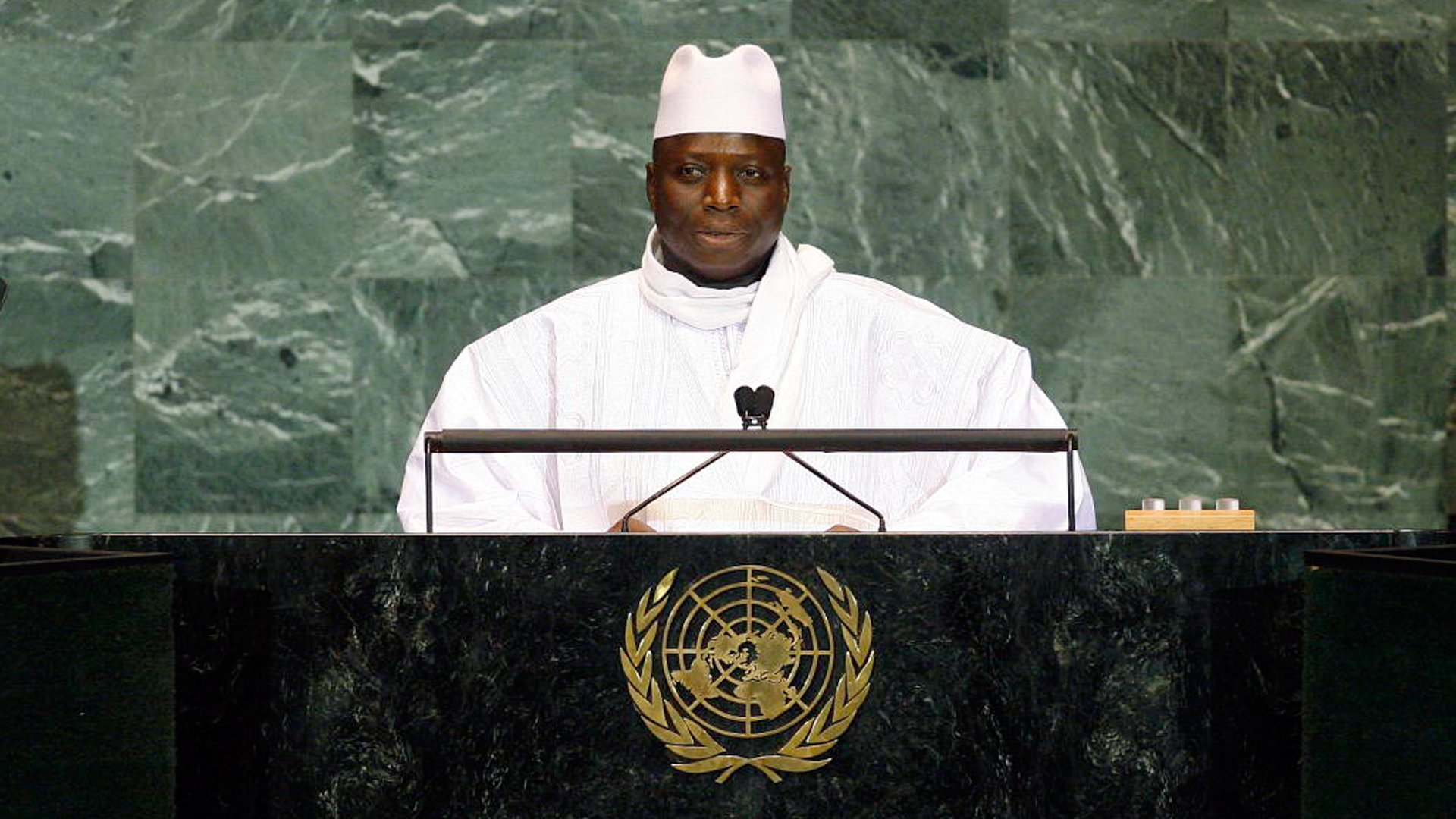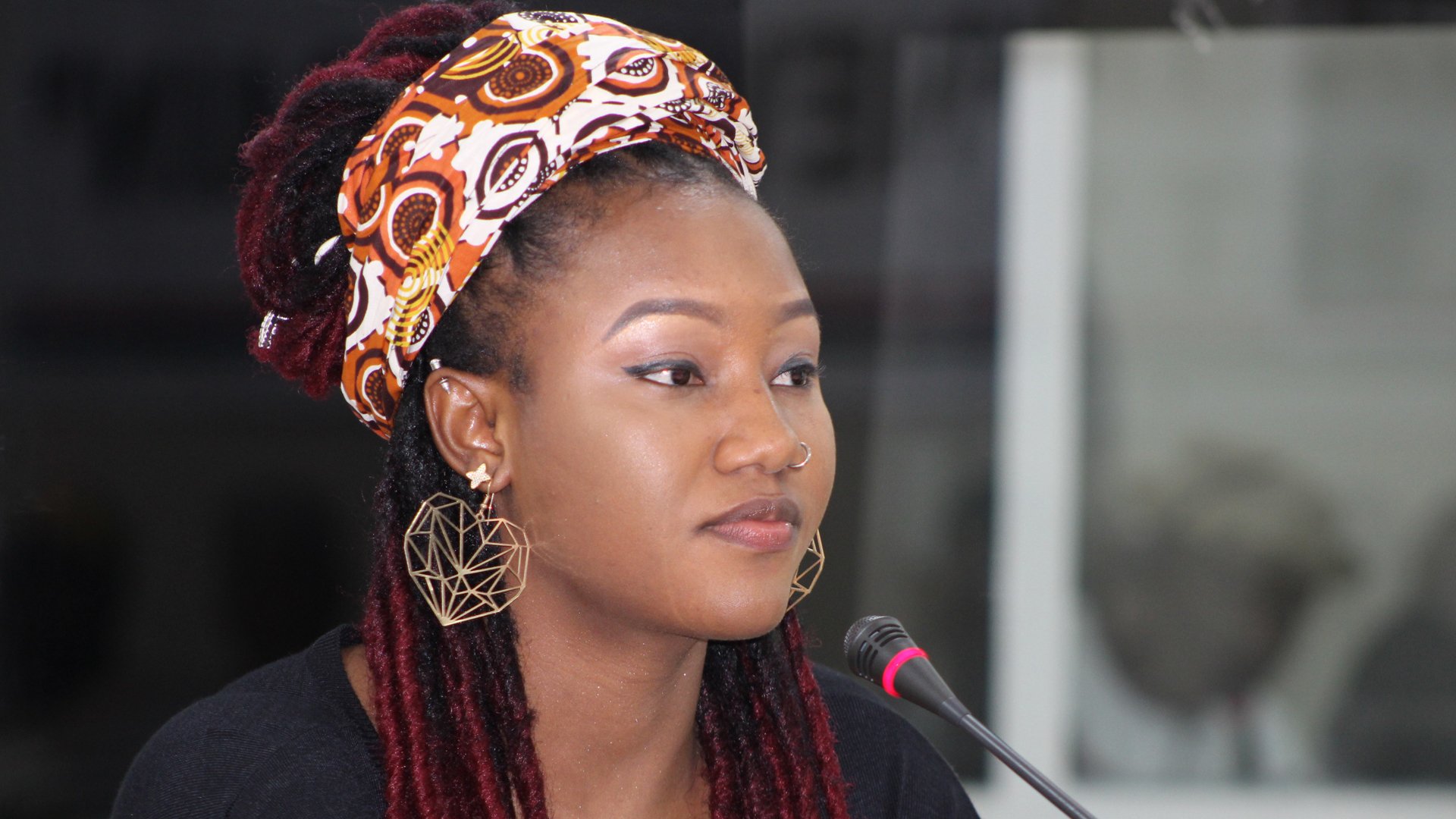The Gambia is beginning to confront a culture of silence around sexual violence, led by a group of women breaking taboos by revealing the alleged abuse they endured at the hands of some of the country’s once most powerful men.
The catalyst for change came in June last year when 23-year-old Toufah Jallow accused former president Yahya Jammeh of rape – a bombshell additional charge to a 22-year reign known for its extrajudicial executions, torture, and disappearances.
She was quickly embraced as the figurehead of The Gambia’s “MeToo” movement. Young activists created an #IamToufah hashtag and peacefully marched on the streets of the capital, Banjul, calling for an end to the silence on speaking out against rape.
“When Toufah Jallow came out, we saw more people share their stories of sexual abuse publicly,” said Sirra Ndow, who set up an online platform supporting survivors of sexual and gender-based violence. “The Toufah movement has given survivors courage.”
Jallow’s allegation was part of an investigation by the NGOs Human Rights Watch and Trial International. She went on to testify in October at The Gambia’s Truth, Reconciliation and Reparations Commission (TRRC), investigating human rights violations under Jammeh, who was overthrown in 2017.
Barriers and stigma
Rape is universally under-reported, but it is especially difficult for survivors to speak out in The Gambia’s close-knit and patriarchal society, where victim and perpetrator are often connected.
“The culture of silence comes from family honour being more important than the survivor,” said Haddy Mboge Barrow, a community nurse pioneering the development of the country’s response to sexual and gender-based violence.
“They think they are helping the survivor by not talking about it,” Barrow, coordinator of the Network Against Gender-Based Violence (NGBV), told The New Humanitarian.
“It’s a culture that really protects the perpetrator,” said Ndow. “Some of us in Gambia are in denial of the extent to which sexual violence happens.”
“I was saying to myself, ‘this is the most powerful man in Gambia, who am I for anybody to listen to’.”
But witness accounts at the TRRC of alleged sexual assault by former government officials and members of the security forces have exposed how sexual violence thrived under Jammeh – who is living in exile in Equatorial Guinea after losing the December 2016 presidential elections and being toppled by a regional military intervention a month later.
Jallow, who lives in Toronto, Canada, returned to The Gambia to give her eagerly awaited testimony to the TRRC on 31 October.
In her five-hour public hearing, she described in detail her accusation that the ex-president raped her at State House during a Ramadan festival, as punishment for not accepting his proposal that she become his second wife.
Jallow had allegedly caught his eye after winning a beauty pageant in 2014 when she was an 18-year-old college student.
“It was the longest night of my life, and I was saying to myself, ‘this is the most powerful man in Gambia, who am I for anybody to listen to’, and believe this; and where do I say this, and, when I say this, what am I expecting is going to happen?” she told the commission.
A system of impunity
Jallow’s feelings of powerlessness after the incident were echoed by other witnesses who spoke before her, as a picture emerged of a system that enabled men in positions of authority to sexually abuse women with impunity.
"He was taking advantage of how vulnerable girls were; he used that to abuse women,” said a former protocol officer, who spoke as an unidentified witness via a Skype audio link and explained how she had been enticed to work for Jammeh with the promise of a scholarship – as Jallow had been.

“He would give protocol officers some attention and gifts, sometimes a house or a car, but then treated them like his own property,” she said.
“It was an oppressive regime, clearly ruled by powerful men in an atmosphere of impunity, and Jammeh was showing the way,” Marion Volkmann-Brandau, a human rights consultant, told TNH. She led an 18-month investigation into sexual violence on behalf of Human Rights Watch and Trial International – a probe that informed the TRRC’s own inquries.
Even before meeting Jammeh, the former protocol officer said she had encountered attempted sexual assaults by a religious leader when she was aged 12, sexual harassment by a former government minister, and another attempted assault by a government official – who is still serving today.
“Poverty put us at high risk of abuse,” she told the commission.
“Most people don’t understand the psychological and emotional impacts, and sometimes the physical consequences of being raped.”
In December, the TRRC concluded its first year of publicly televised hearings. Its deliberate focus on sexual violence is all the more important because the culture that enabled the abuse did not disappear with Jammeh’s exile.
“These were crimes committed using the power and the resources of the state, but it also shines a light onto the wider societal problems [in The Gambia] that rape goes under-reported,” said Reed Brody, legal counsel for Human Rights Watch, which is part of the Jammeh2Justice Coalition, campaigning to bring Jammeh to trial.
Witnesses spoke of their sense of isolation after the incidents and how this had affected their mental health. “I’ve had overdoses; I cut myself; I wanted to get rid of myself,” the former protocol officer told the commission when asked how she had been impacted by her experiences.
“There’s not the appreciation of the gravity of sexual violence,” said Ndow, whose online platform supports survivors of sexual violence. “Most people don’t understand the psychological and emotional impacts, and sometimes the physical consequences of being raped.”
Backlash
Challenges remain in how victims who speak out are treated by the public, as they face the real risk of re-victimisation. The TRRC had to issue a warning that it would use the law to clamp down on those who discredit witnesses after a politically motivated backlash against witness Bintou Nyabally, who alleged she was raped by two Junglers – Jammeh’s notorious death squad – while in detention.
Jallow has also faced scorn from people trying to discredit her allegation. She is constantly attacked on social media, and told TNH that her family in The Gambia have been threatened.
She suspects Jammeh loyalists are behind the intimidation. At a rally in November, a spokesman for Jammeh’s APRC party, Ousman Rambo Jatta, appeared to directly threaten Jallow. "We are waiting for the recommendations of the TRRC. That's when we shall decide what path to take with you,” he reportedly said.
Speaking before her hearing, Jallow had said she was bracing for this reaction. But she felt compelled to testify, not just for herself, but to “address this epidemic [of sexual violence] that is so prevalent yet very discreet within [our] society”.
With the nation glued to their TVs and smartphones watching her testimony, Jallow seized the moment to challenge the culture of silence on rape.
“I had to redefine myself and tell my story in this culture and in this space, and to take whatever backlash comes with it, so that the next person will be getting lesser and lesser of a backlash,” she said in her concluding statement.
lh/oa/ag






